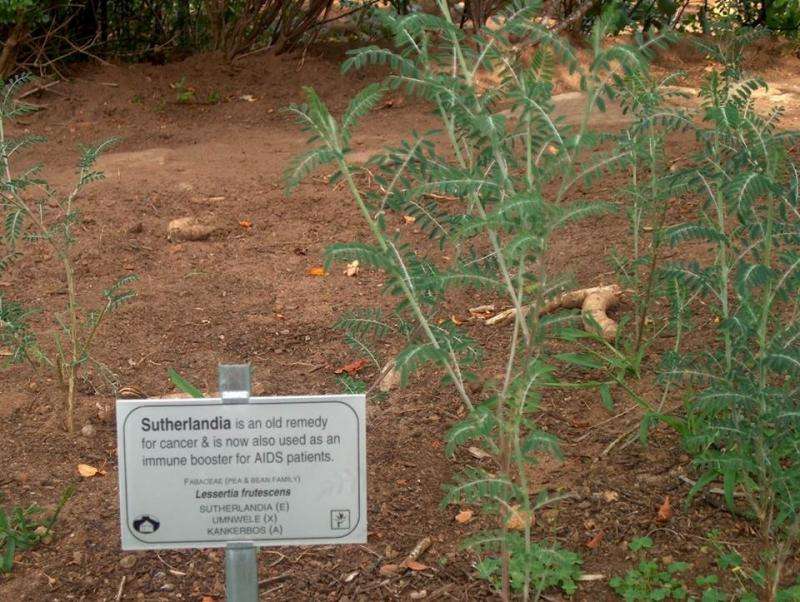Anti-tuberculosis drug disrupted by botanical supplement, can lead to development of disease

Botanical supplements are used by people around the world to treat a wide range of physical and mental ailments. Some of these botanical supplements have high levels of antioxidants, which may have some positive health effects for certain conditions. However, a new study from the University of Missouri in partnership with scientists in Africa has uncovered evidence that these supplements and their antioxidants may reduce the effectiveness of prescription medications. The researchers examined the effects of a widely used African botanical supplement, called Sutherlandia, and found that it may disrupt the effectiveness of a common anti-tuberculosis drug. This could lead to the development of active tuberculosis and perhaps drug resistant forms of the pathogen in some patients.
For the study, William Folk, a professor of biochemistry in the University of Missouri School of Medicine and College of Agriculture, Food and Natural Resources, and his colleagues monitored South African patients who were taking either Sutherlandia or a placebo, along with the world-standard anti-tuberculosis drug, isoniazid. Sutherlandia is a supplement commonly taken in Africa to fight symptoms of infection and some chronic diseases, such as diabetes. The researchers observed that several patients taking the Sutherlandia supplement developed active tuberculosis despite taking Isoniazid.
"We believe that the antioxidants in Sutherlandia can directly disrupt how Isoniazid functions within the body to prevent tuberculosis," Folk said. "Isoniazid is very reliable in preventing the active form of this potentially deadly microbe, which is present in nearly one-third of all humans, but if individuals concurrently take a botanical supplement, they could undo the good that the scientifically proven drug is accomplishing. More than one-third of the world's population is susceptible to active tuberculosis, so it is unfortunate that Sutherlandia, which traditionally is taken to prevent or treat infections, can actually cause them to develop the disease, and perhaps also cause the microbe to become a drug-resistant 'super bug.'"
Folk says this finding could apply to many different botanical supplements and many different medications, including cancer-fighting drugs. He says it is important for future research to examine potential interactions between drugs and antioxidant-laden supplements.
"With so many people around the world turning to botanical supplements to help with a wide range of health issues, it is vital that we explore how these supplements interact with established medical drugs," Folk said. "Many drugs use pathways that could be disrupted by antioxidants, so we need for physicians to better advise their patients. Many physicians do not know everything that their patients take, so it is important for people to inform their physicians, and for physicians to ask, so they can better advise their patients what is best for their health."
More information: William R. Folk et al. Does Concurrent Use of Some Botanicals Interfere with Treatment of Tuberculosis?, NeuroMolecular Medicine (2016). DOI: 10.1007/s12017-016-8402-1
















